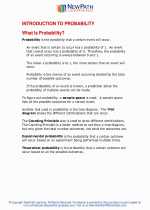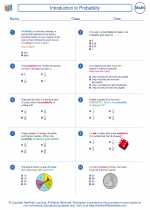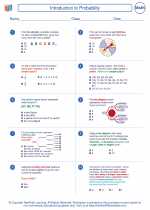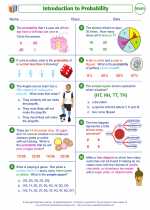Subjective Probability
Subjective probability is a type of probability that is based on an individual's personal judgment or opinion, rather than on a rigorous mathematical calculation. It is used when there is no objective or empirical way to determine the likelihood of an event.
Key Concepts:
- Personal Judgment: Subjective probability is influenced by an individual's beliefs, experiences, and opinions about the likelihood of an event occurring.
- Qualitative Measures: It often involves the use of qualitative measures such as "unlikely," "likely," "certain," etc., rather than numerical probabilities.
- Uncertainty: Subjective probability is frequently used in situations where there is uncertainty and limited information available.
Examples:
Examples of subjective probability include a person's belief in the likelihood of their favorite sports team winning a game, the chance of it raining on a particular day based on personal observations, or the probability of a particular stock performing well in the future based on an individual's analysis of the market.
Study Guide:
Here are some steps to follow when dealing with subjective probability:
- Assess the Situation: Identify the event or situation for which you need to determine the likelihood.
- Evaluate Personal Factors: Consider your own beliefs, experiences, and any relevant information that may influence your judgment of the event's probability.
- Express the Probability: Use qualitative measures such as "highly likely," "unlikely," or "moderately certain" to express your subjective probability assessment.
- Review and Reflect: Reflect on your assessment and consider any new information that may impact your judgment.
It's important to note that subjective probability is not always reliable, as it can be influenced by bias, emotions, and limited information. However, it can still be a useful tool when making decisions in uncertain or ambiguous situations.
.◂Math Worksheets and Study Guides Seventh Grade. Introduction to Probability

 Worksheet/Answer key
Worksheet/Answer key
 Worksheet/Answer key
Worksheet/Answer key
 Worksheet/Answer key
Worksheet/Answer key
 Worksheet/Answer key
Worksheet/Answer key
